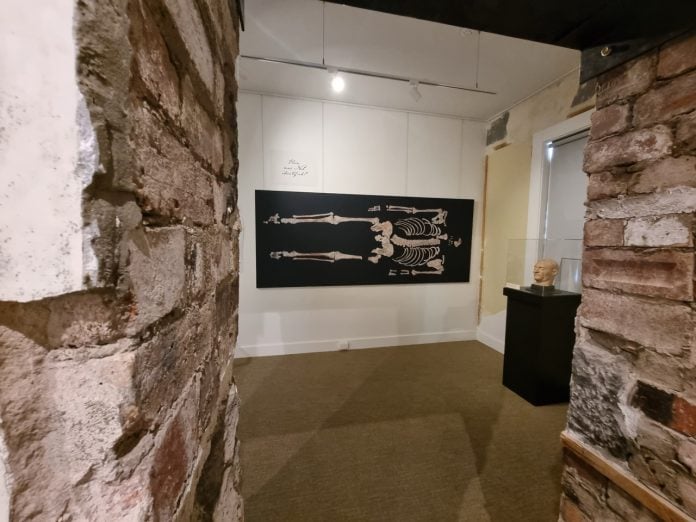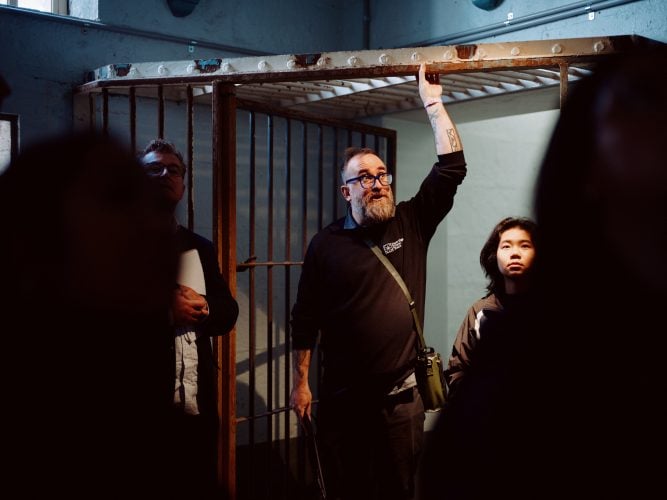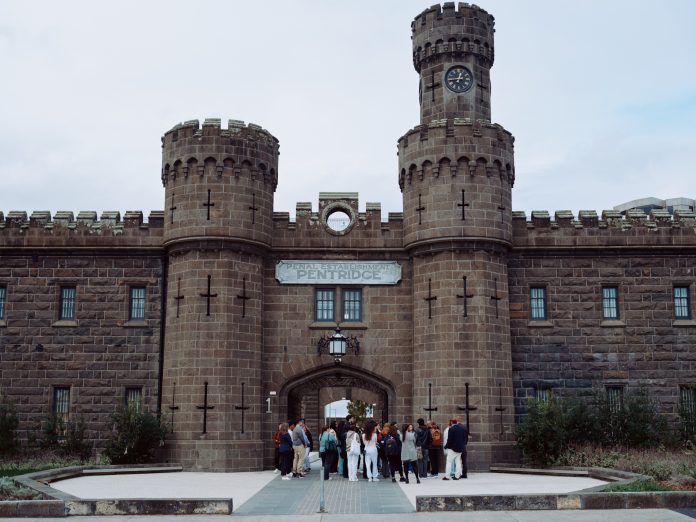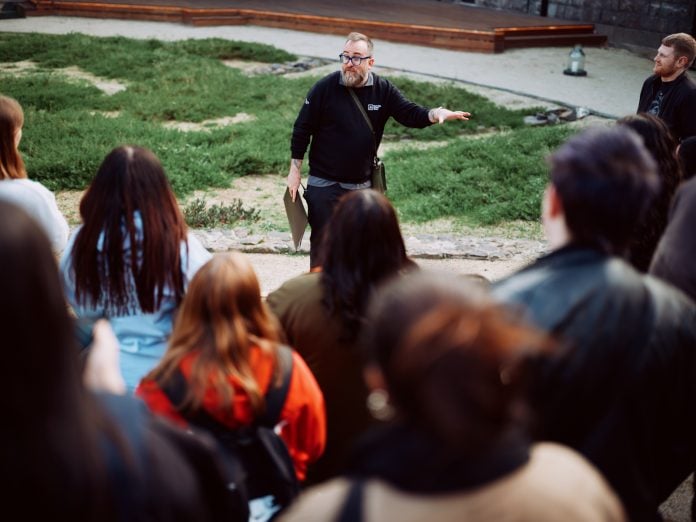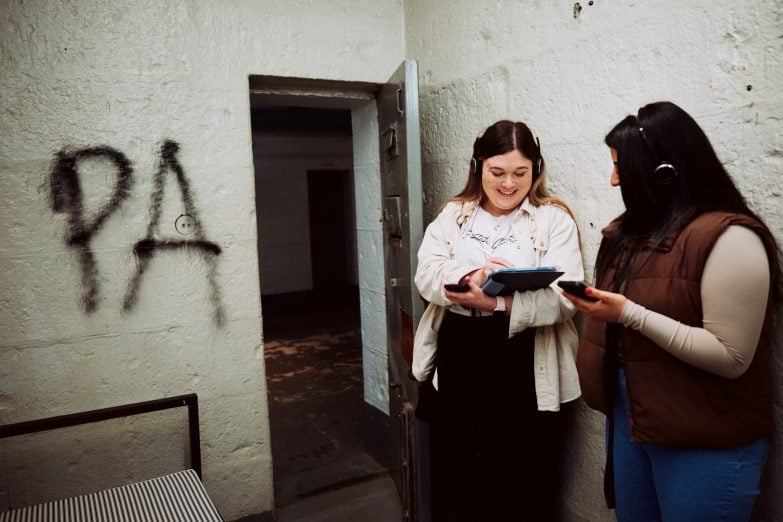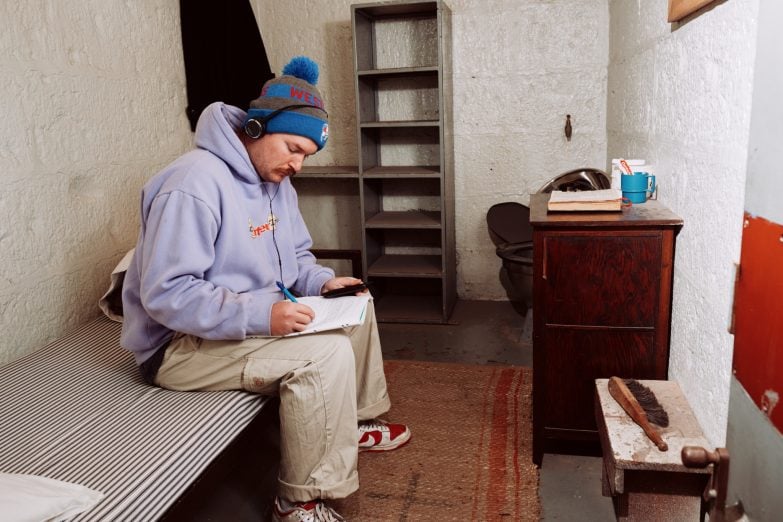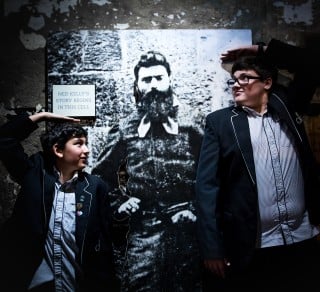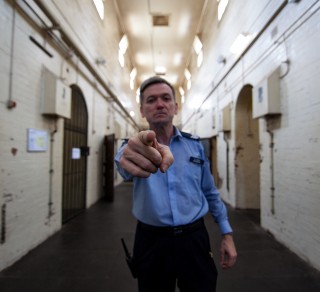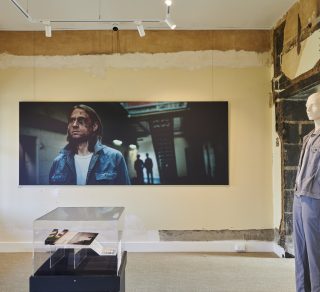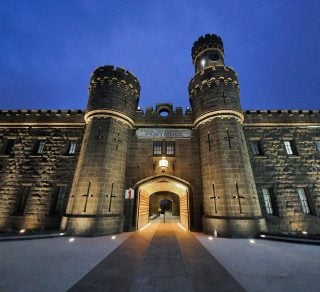| Legal Studies | Unit 1 | AOS1: Legal Foundations | The role of individuals, laws and the legal system in achieving social cohesion and protecting the rights of individuals | Consider if Pentridge worked as a way to deter people from a life of crime. |
| | AOS2: Proving guilt | Types of crime such as crimes against the person and crimes against property | Study the cases of William O’Meally and John Killick as examples of crimes committed within the walls of Pentridge. Killick’s crime involved both crime against the person, and property. |
| | AOS3: Sanctions | Types of sanctions such as fines, community correction orders and imprisonment | Learn about the many different sanctions within the walls of Pentridge including corporal punishment, solitary confinement, hard labour and capital punishment. |
| | | The purposes of sanctions: punishment, deterrence, denunciation, protection and rehabilitation | Understand the rationale behind Pentridge; deterrence and rehabilitation and assess whether it achieved these aims. |
| Unit 2 | AOS2: Remedies | The principles of justice: fairness, equality and access | Ask the questions – was Pentridge a fair place? Did it achieve justice? |
| Unit 3 | AOS1: The Victorian Criminal Justice System | Factors considered in sentencing, including aggravating factors, mitigating factors, guilty pleas and victim impact statements | Learn that historically, legal proceedings were not as fair as they are today, and this resulted in a lot of people being more likely to end up at Pentridge due to their gender, race, sexual orientation, political beliefs, religious beliefs and social status. |
| Unit 4 | AOS2: The People and Reform | The ability and means by which individuals can influence law reform including through petitions, demonstrations and the use of the courts | Learn about the many protests that took place inside the walls of Pentridge for rights, and outside the walls for clemency in cases such as Jean Lee and Ronald Ryan (the last woman and man to be executed in Australia, respectively). |
| Sociology | Unit 2 | AOS1: Deviance | Deviance as a relative concept and the relationship between norms (social codes) and deviance | Discuss society in Melbourne in the 1800s, learning about crimes of desperation such as vagrancy which could earn you 12 months in prison. Learning about the 1890s economic depression in Melbourne and how that affected the prison population. |
| | A range of factors that lead people to commit crimes, including poverty, addiction, abuse, and rebellion. | Learn about political prisoners at Pentridge such as Frank Penhalluriack, the La Trobe Three and draft resisters. Students will discuss the types of people likely to be imprisoned, paying particular attention to the poor and mistreated, including First Nations people. |
| | The impact of moral panic on individuals and groups considered deviant. | Learn about the many women who were imprisoned at Pentridge and their supposed deviance from how women 'should' behave. |
| | AOS2: Crime and Punishment | Australian data related to crime rates, including age, gender, socioeconomic status and ethnicity | Discuss the demographics represented within Pentridge in a particular timeperiod, noting any outliers in terms of numbers. |
| | The sociological concept of punishment, including the rationale and aims of punishment: retribution, deterrence, rehabilitation and societal protection | Learn about the many different punishments within the walls of Pentridge including corporal punishment, solitary confinement, hard labour and capital punishment. |



